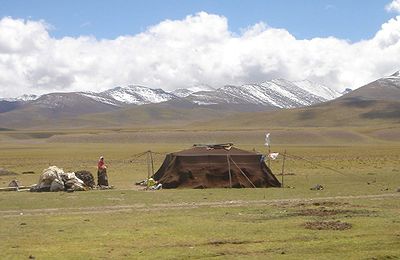
I am in DC this week and feeling a little bit nomad-like. My apartment that I own here is rented through the summer and I am relying on the kindness of friends and family along the eastern seaboard for shelter. A friend of mine and I decided that to call myself homeless was too flippant, so now I am using the moniker “domicially challenged” as to not offend the real homeless that wander around without the option of a home.
While meetings, social engagements and baseball have all been eating up my time, I haven’t had a ton of time to unwind. But when I push myself to the brink of exhaustion and need to unplug for a bit, I have been watching the amazing series by Ewan MacGregor called Long Way Round, which chronicles the story of Ewan and his buddy driving 20,000 miles across Europe, Asia and the US on motorcycles. It came out about 3 or 4 years ago and the moto crowd just dug it. I am not a motorcycle person, but can appreciate the idea of traveling exposed to the elements and the people (a la a bicycle) in a way that a car cannot even pretend to give you.
The other night in my mobile living room (aka my computer), Ewan and Charlie were schlepping through Mongolia. And I mean schlepping. Shitty roads no more than a jagged path of boulders with puddles bigger than a circus fat lady, accidents, and other scary stuff filled their days. When they were getting near the end of Mongolia, Ewan commented about how being nomadic was part of the culture in Mongolia and how there was something really nice about that freedom.
As a nomad, I can say it has its ups and downs. I enjoy the simplicity and variety of locations, something that I think Ewan was appreciating too. But sometimes you just wish for your own kitchen, your own routine and your own bed. I think this come from conditioning, however, since in the first world we are not raised to put our clothes and our houses on our back every few weeks to find the next bit of food or avoid a tribal skirmish.
The Mongolians are not alone as nomads. Throughout the third world, in the Middle East and parts of Africa people live in a constant state of movement often for reasons of food or environment. In most first world cultures, a nomadic lifestyle is not embraced or impossible. How could you possibly live as a nomad if you go shop at Macy’s every week? Economist Juliet Schor estimates that in 2004, Americans purchased an average of fifty-seven garments per year. Where are you possibly going to carry all that stuff you keep buying if you needed to pack it up and move on out?
And of course, since I am not buying this stuff, someone is buying my share too. Ouch.




